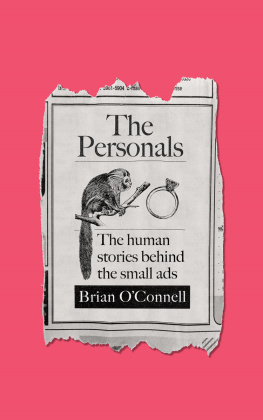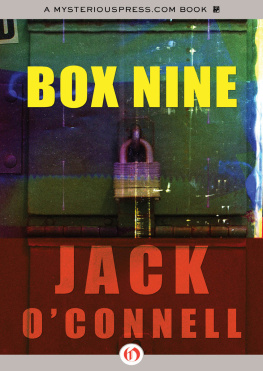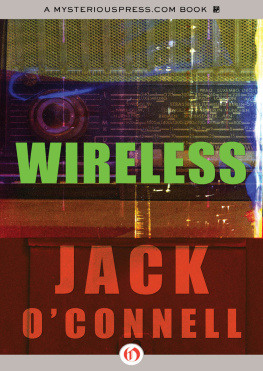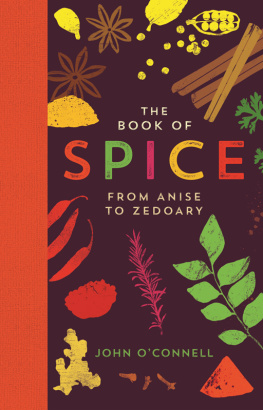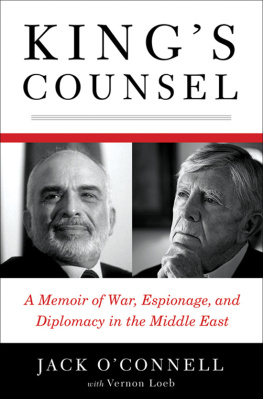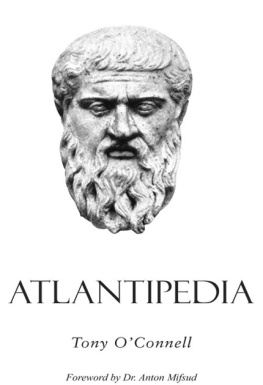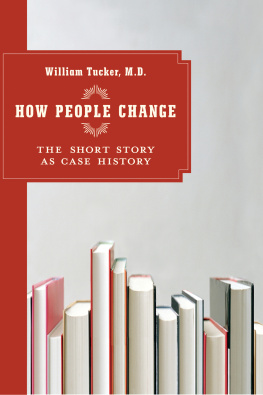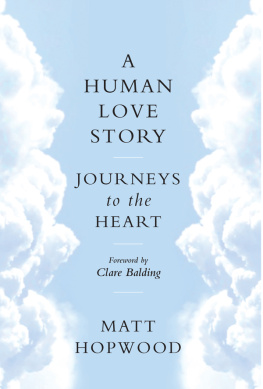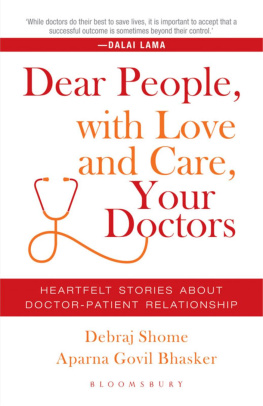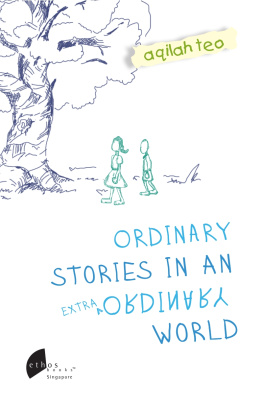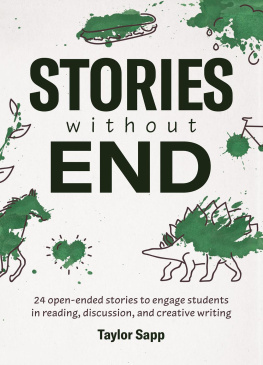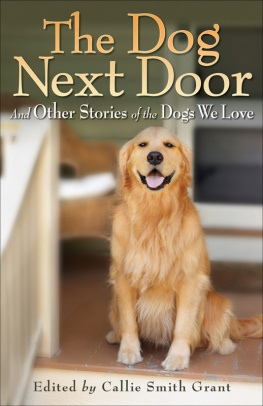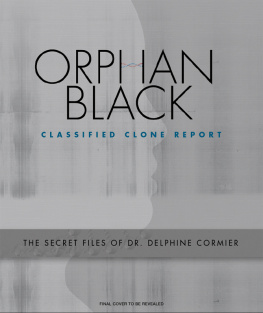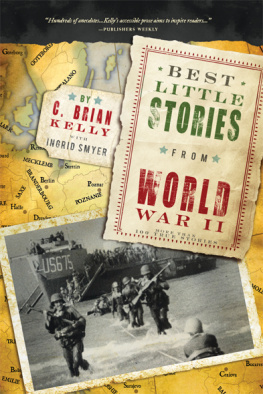In order to protect privacy, some names, identifying characteristics, dialogue and details have been changed or reconstructed.
HarperCollinsPublishers
1 London Bridge Street
London SE1 9GF
www.harpercollins.co.uk
First published by HarperCollinsPublishers 2019
FIRST EDITION
Brian OConnell 2019
Illustrations Micaela Alcaino 2019
Cover layout design HarperCollinsPublishers 2019
Cover images shutterstock.com
A catalogue record of this book is available from the British Library
Brian OConnell asserts the moral right to be identified as the author of this work
All rights reserved under International and Pan-American Copyright Conventions. By payment of the required fees, you have been granted the nonexclusive, non-transferable right to access and read the text of this e-book on screen. No part of this text may be reproduced, transmitted, downloaded, decompiled, reverse engineered, or stored in or introduced into any information storage retrieval system, in any form or by any means, whether electronic or mechanical, now known or hereinafter invented, without the express written permission of HarperCollins e-books.
Find out about HarperCollins and the environment at
www.harpercollins.co.uk/green
Source ISBN: 9780008321345
Ebook Edition October 2019 ISBN: 9780008321352
Version: 2019-09-06
Just for a second, I thought I lost myself,
And I watched my body falling,
And all the colours look brighter now.
Brian Carey, RIP
The story goes that Ernest Hemingway and a few of his literary pals were knocking about the Algonquin Hotel in New York one night in the 1920s, before they had the joys of social media to help them avoid conversation, and they began challenging each other to write a novel using just six words. Cutting a long story short, Hemingway is said to have won hands down with the words: For Sale: Baby Shoes, Never Worn.
Hes reputed to have said that those six words were the best he ever wrote. They are loaded with life experience, love, loss, death and hope perhaps; a six-word portal into lived experience that Dorothy Parker or William Carlos Williams might have been proud of. The only problem is, while this sounds a plausible story that has been handed down over decades as literary fact, it probably never happened or if it did happen, it almost certainly predated Hemingway and his bohemian clique. An essay about a similar short story by William R. Kane appeared in 1917 and a newspaper column by R. K. Moulton in 1921 pointed to an advert he had seen: Baby Carriage for Sale: Never Used and informed his readers that it embodied the plot of a story. The Hemingway anecdote probably evolved over time, as a literary agent more or less admitted decades later when he said that he had first heard the story from a newspaper syndicator in the mid-1970s, more than a decade after Hemingway had died.
The point is that classified ads have long held fascination as a rich source of human experience and stories. When starting out in journalism in local media, I remember staring out of the window on a dreary Tuesday morning, stuck for story ideas for that mornings pitching session. I shared my frustration with an older editor, who told me to try the small ads. So I did, and I have returned to them again and again in the two decades since as a source of stories.
In an era of PR handlers and press releases, of government advertising camouflaged as journalism, and carefully chosen interviewees who are sometimes over-coached and underwhelming, the world of classified ads, both online and in print, offers an unfiltered window into society.
Ive spent almost two decades in journalism, and something interesting has happened in that time. People have never put as much of themselves out there as they do today, whether through social or digital media, or by sharing their stories or opening up in more traditional media. There have never been so many filters or gatekeepers trying to shape those narratives. Sometimes an interviewee may have shared their story online, had a media training workshop, or may already possess a them and us mentality about journalists and the media in general before I even get to speak to them. Some of that mistrust is warranted, and very healthy of course, but theres also cynicism in a lot of encounters, and many more competing agendas than previously when I sit across from someone and press record.
When using Instagram, Snapchat, Facebook live, video and audio messaging we are all much more aware of how we project ourselves than ever before. As a result, people often display a caginess and deep self-awareness of how they conduct themselves during an interview. One contradiction Ive come across is that the more people are willing to expose of their lives online, the less personal and intimate they may want to be in one-to-one encounters. Authenticity can become a casualty, chance encounters become less likely and conversations without agendas are at a premium.
Hopefully, because of all that, you can see why personal ads and the people and lives and secrets and stories and heartbreak and quirkiness that sometimes lie behind them are so appealing to this fortysomething and somewhat sentimental hack, and why I thought they would work well collected in a book. The ads allow me to move away from the managed world of spin doctors and carefully planned media campaigns to a less self-conscious world one that I think is at times more authentic.
Of course, part of this book is about items for sale, but that section is also about the off-piste moments when an ad for a ring turns into a discussion about dementia, or a poster for sale reveals the struggles of independent shops in rural Ireland. These ads also show how letting go of an item becomes a lesson in how to own your grief, or how living with and then discarding addiction can paradoxically set you free. Classified ads brought me into peoples lives for no other reason than the fact that they let me in. There were no PR agencies, no communication strategies, no media advisers and no campaigns wrapped tightly around case studies. As they say on Judge Judy, the stories are real, the people are real!
On a basic level, Im also drawn to these ads because they throw up some humdingers of stories. The excitement for me, and I hope for you reading this, is going from a few lines of text to the trenches of the First World War, or getting an insight into the complexities of a relationship break-up, or the obsessive mind of a fixated collector or simply capturing a time or a story or an experience that would otherwise not be documented.
When I was about halfway through researching this book, my wife peered into my office and saw me sitting with my feet on the desk, steaming cup of tea in hand, scrolling through a list of never worn wedding dresses for sale. The slightly worrying thing is that she didnt bat an eyelid. My obsession with classified ads is really an obsession with peoples lives and stories the ads are just a doorway through which I stick my head.
There was a time not long ago when I sourced most of these stories solely from ads in print media places such as the Irish Farmers Journal, Irelands Own, The Echo and many broadsheets had extensive classified sections, as well as personal pages. The majority of these ads have migrated online, as sites such as Craigslist and later Adverts, Gumtree and DoneDeal made it much easier to buy and sell in the digital era. And so I have followed suit.
By collating a selection of recent adverts and some I have captured over the last few years, I want to take you down lanes and into homes, into hearts and cluttered minds and tell stories that would not otherwise be told. In all except maybe half a dozen of these stories, I have met the people behind the ads in person, usually travelling to their homes or meeting them in a car or cafe nearby. When that wasnt possible, or the poster did not want to meet, we spoke at length on the phone or through email.

